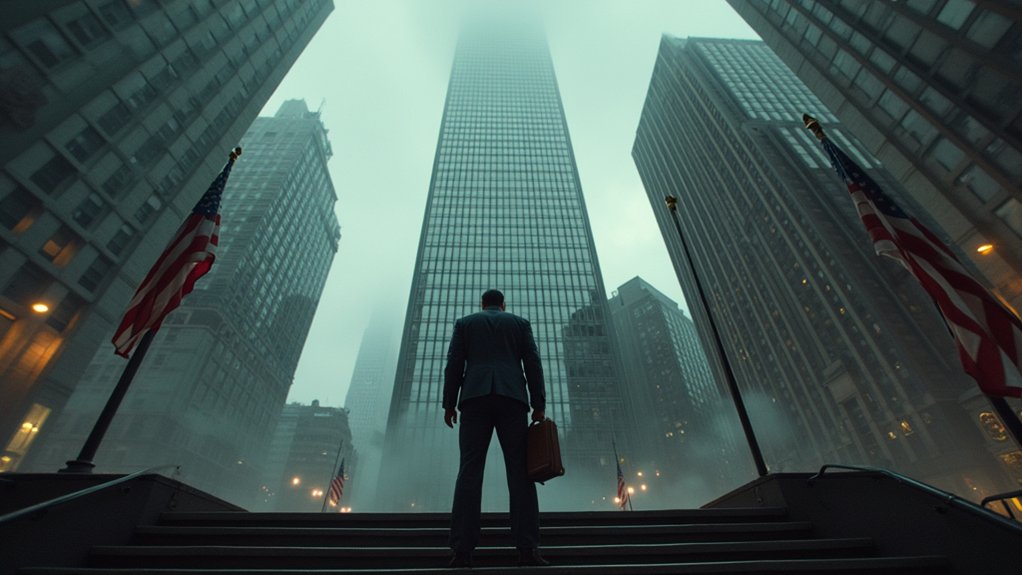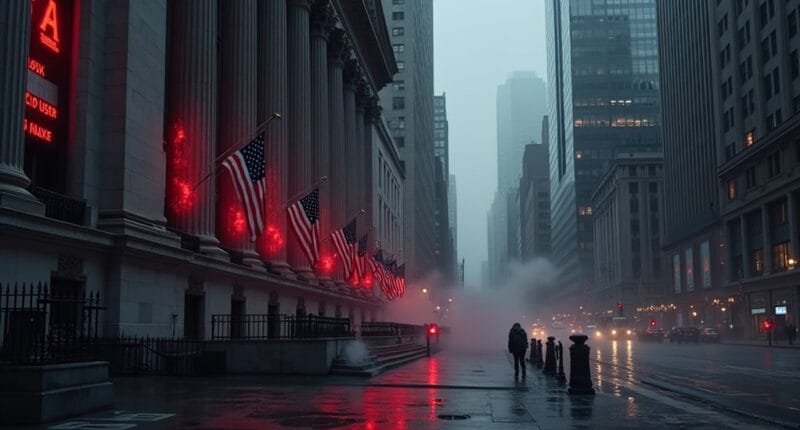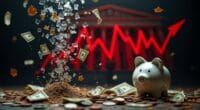Wall Street’s relationship with Trump hit the rocks as his aggressive tariff policies rattled markets. Treasury Secretary Scott Bessent got pushed to the sidelines while Peter Navarro pushed a hardline “America First” agenda. The administration slapped hefty tariffs on Mexican imports (25%) and Canadian goods (10%), sending stocks tumbling. Major players like Warren Buffett and Ken Griffin voiced alarm as Trump’s economic nationalism crushed Wall Street’s free-trade dreams. The real drama was just beginning.

Panic gripped Wall Street as Trump’s controversial tariff policies sent shockwaves through the financial sector. Major financial institutions watched in horror as markets tumbled, and Treasury Secretary Scott Bessent – their go-to guy in Washington – found himself increasingly sidelined in the administration’s bold economic gambit.
Wall Street reeled as Trump’s tariff gambit blindsided financial markets, leaving even treasury allies powerless to stem the mounting chaos.
The White House’s decision to slap hefty tariffs on trading partners hit like a sledgehammer. Mexican imports got whacked with a 25% rate, while Canadian goods faced similar treatment, save for energy products at 10%. Wall Street bigwigs Ken Griffin and Warren Buffett didn’t mince words, warning that this protectionist crusade would kneecap economic growth. Business cycles historically show that protectionist policies can amplify economic downturns.
Peter Navarro, the administration’s tariff cheerleader, effectively pushed Bessent to the margins. So much for having friends in high places. Wall Street’s desperate appeals to Treasury fell on deaf ears as the administration doubled down on its “America First” economic vision. The financial community’s misplaced faith in Trump became increasingly apparent as markets continued to struggle. Markets responded with a multi-day nosedive that had traders reaching for their antacids. The announcement from the Rose Garden created immediate ripples through financial markets.
The rollout was about as smooth as sandpaper. Business leaders fumed over the lack of coordination and clear communication. Nobody seemed to know exactly what was happening or when. Confusion reigned supreme as industries scrambled to figure out what hit them. The administration’s response? A collective shrug and repeated assertions that tariffs would serve “broader national goals.”
The whole mess exposed a growing rift between Wall Street’s globalization-loving elite and Trump’s economic nationalism. Banks and multinational corporations, long accustomed to free-flowing international trade, found themselves squaring off against an administration determined to reshape global commerce.
Market volatility spiked across automotive, agriculture, and tech sectors as investors grappled with the new reality. Trump stood firm, insisting these measures were essential for rebuilding U.S. manufacturing and addressing trade deficits. Meanwhile, Wall Street’s faith in their supposedly pro-business president crumbled faster than a house of cards in a hurricane.





